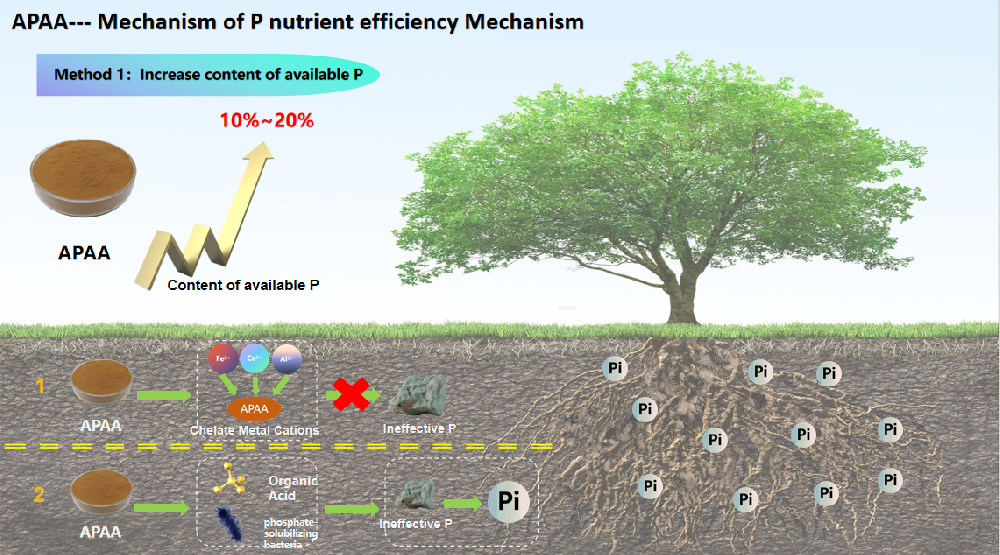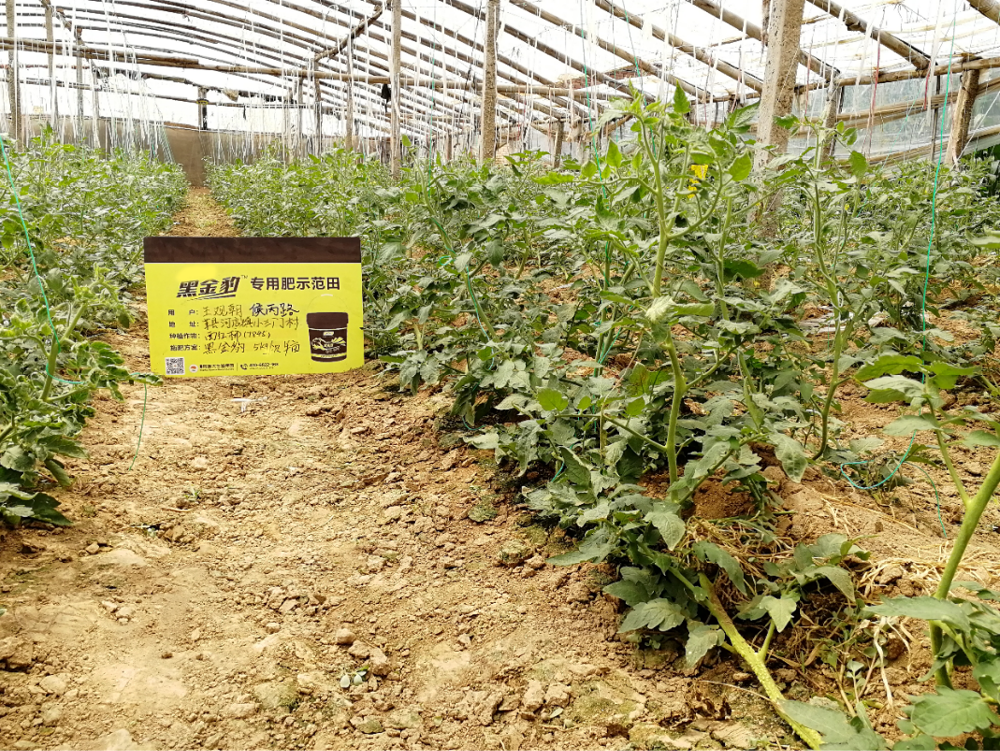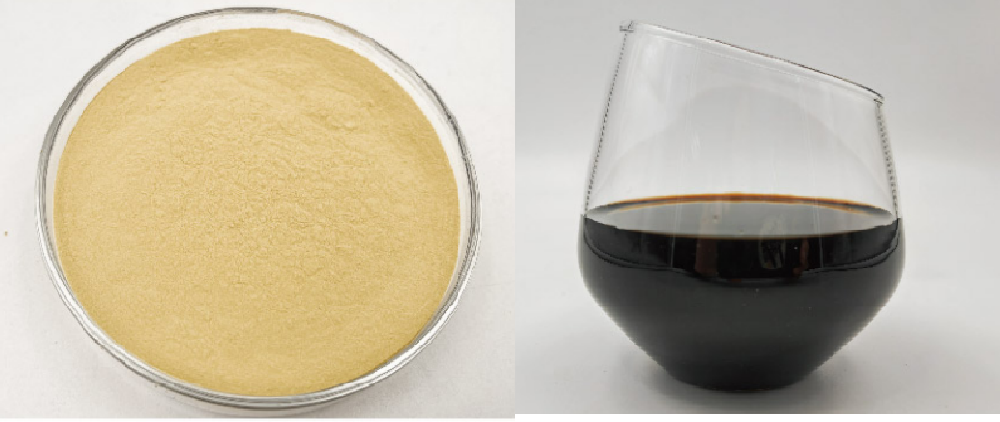Soil health is a cornerstone of sustainable agriculture, yet many farmers face ongoing challenges that degrade soil quality. From nutrient imbalances to soil erosion, modern farming practices have led to an alarming deterioration in the overall health of agricultural soils worldwide. In this blog, we will explore the key issues affecting soil in modern agricultural systems and present solutions, focusing on soil conditioners and biostimulants, such as seaweed extract, fulvic acid, Bacillus species, and polyglutamic acid (PGA), to improve soil health and promote sustainable farming practices.
The Importance of Soil Health in Modern Agriculture
Soil is not just a passive medium for plant growth. It is a living ecosystem that supports a complex web of organisms, from microscopic bacteria to earthworms, all of which contribute to soil fertility and plant health. Soil health[1] refers to the ability of soil to function as a vital living ecosystem that sustains plant life, enhances water infiltration, reduces erosion, and retains nutrients.
However, modern agriculture often prioritizes short-term gains over long-term soil sustainability. Over-reliance on synthetic fertilizers, improper irrigation practices, and excessive tillage all contribute to soil degradation. As a result, many agricultural systems now face soil-related challenges, including:
Soil Erosion: Loss of topsoil due to wind and water erosion can lead to a reduction in soil depth, decreasing its ability to support crops.
Nutrient Depletion: Continuous cropping without proper soil management practices depletes the soil of essential nutrients, causing poor crop yields and reduced soil fertility.
Soil Compaction: Heavy machinery and overgrazing lead to compacted soils, which impair root growth and hinder water movement.
Soil Salinity: In regions with poor drainage or over-irrigation, salts can accumulate in the soil, rendering it unsuitable for farming.
Acidification: Excessive use of chemical fertilizers can lead to a reduction in soil pH, making the soil more acidic and less conducive to plant growth.
The Role of Soil Conditioners in Improving Soil Health
Soil conditioners play an essential role in addressing these issues. Soil conditioning refers to the process of improving soil's physical, chemical, and biological properties to create a more favorable environment for plants. By adding specific substances to the soil, farmers can restore soil structure, increase nutrient availability, and enhance microbial activity.
One of the most effective ways to improve soil health is through the use of biostimulants, which can help stimulate plant growth while improving the soil environment. Biostimulants are substances or microorganisms that enhance plant growth, improve plant tolerance to stress, and increase the availability of nutrients in the soil. A wide range of biostimulants, including seaweed extract, fulvic acid, Bacillus species, and PGA, offer promising solutions for improving soil health.
Seaweed Extract: A Natural Soil Conditioner
Seaweed extract[1] is one of the most popular biostimulants[2] used in modern agriculture. Derived from marine algae, it contains a variety of nutrients, growth hormones, and trace elements that are beneficial for both plants and soils. Seaweed extract helps improve soil health by:
Enhancing Soil Structure: Seaweed extract improves the soil's ability to retain moisture and promotes better drainage, which reduces the risk of soil erosion and compaction.
Stimulating Microbial Activity: The natural growth hormones in seaweed extract stimulate beneficial soil microorganisms, improving the soil's biological activity and nutrient cycling.
Reducing Soil Stress: Seaweed extract helps reduce the negative effects of drought, high temperatures, and other abiotic stresses on plants by enhancing their resilience.
Fulvic Acid: Enhancing Nutrient Availability
Fulvic acid is a humic substance that plays a crucial role in improving soil health by increasing nutrient availability. It is formed during the decomposition of organic matter and is known for its ability to improve soil structure and enhance the plant's ability to absorb nutrients.
Improving Nutrient Uptake: Fulvic acid helps chelate nutrients, making them more accessible to plant roots. It also increases the solubility of minerals like iron, zinc, and calcium, which are essential for plant growth.
Enhancing Soil Fertility: Fulvic acid helps build organic matter in the soil, improving its cation-exchange capacity (CEC), which is the ability of soil to hold and exchange essential nutrients.
Promoting Beneficial Microbial Activity: Like seaweed extract, fulvic acid encourages the growth of beneficial soil microbes, including nitrogen-fixing bacteria, which help increase soil fertility and plant growth.
Bacillus: Beneficial Soil Bacteria
Bacillus species are a group of beneficial soil bacteria that play a vital role in improving soil health. These bacteria have the ability to break down organic matter, fix nitrogen, and protect plants from harmful pathogens. Bacillus-based biostimulants have shown remarkable potential in promoting soil health through the following mechanisms:
Nitrogen Fixation: Bacillus species can fix atmospheric nitrogen, making it available to plants and reducing the need for synthetic fertilizers.
Degradation of Organic Matter: Bacillus bacteria break down organic materials, improving soil texture and increasing the soil's ability to retain water and nutrients.
Biological Control: Some Bacillus species produce natural antibiotics that can suppress harmful soil-borne pathogens, reducing the need for chemical pesticides.
Polyglutamic Acid (PGA): A Multifunctional Soil Improver
Polyglutamic acid (PGA) is a naturally occurring biopolymer that has gained attention in recent years for its role in soil conditioning. PGA is produced by certain microorganisms and can enhance soil health in multiple ways:
Improving Water Retention: PGA has the ability to absorb and retain large amounts of water, making it useful for improving soil moisture content, especially in drought-prone areas.
Enhancing Soil Structure: PGA helps improve the aggregation of soil particles, reducing compaction and improving aeration, which is essential for healthy root development.
Stimulating Microbial Growth: PGA serves as a food source for beneficial soil microbes, fostering a healthier soil microbiome and enhancing nutrient cycling.
The Importance of the Rhizosphere in Soil Health
The rhizosphere, the zone of soil directly surrounding plant roots, plays a pivotal role in soil health. It is where most of the soil's biological activity occurs, and it is home to a vast community of microorganisms that interact with plant roots. The health of the rhizosphere is critical for nutrient uptake, disease suppression, and overall plant growth. Biostimulants such as seaweed extract, fulvic acid, Bacillus species, and PGA all have a significant impact on the rhizosphere by promoting microbial diversity and activity, improving nutrient availability, and enhancing plant resilience.
Conclusion: Restoring Soil Health for Sustainable Agriculture
Modern agriculture faces numerous challenges related to soil degradation, but solutions exist. By incorporating soil conditioners and biostimulants such as seaweed extract, fulvic acid, Bacillus species, and PGA, farmers can restore soil health, improve crop yields, and reduce dependence on synthetic fertilizers. These natural products not only address soil issues but also promote sustainable farming practices by enhancing the soil ecosystem and fostering a healthier rhizosphere. Through the proper use of these solutions, we can help ensure the long-term productivity and health of agricultural soils, benefiting both the environment and future generations of farmers.




